Paris review: Karlos Nasar leads the way as young stars – and fans – excel on the biggest stage
If Paris 2024 is a good guide, weightlifting is heading for a bright future. While the outstanding individual achievement was Lasha Talakadze winning his third gold, the best performance of the Olympic Games came from Karlos Nasar, who was 20 in May.
Many people expected the formidable Bulgarian to win at 89kg, but few would have expected him to smash the world record on total by 8kg.
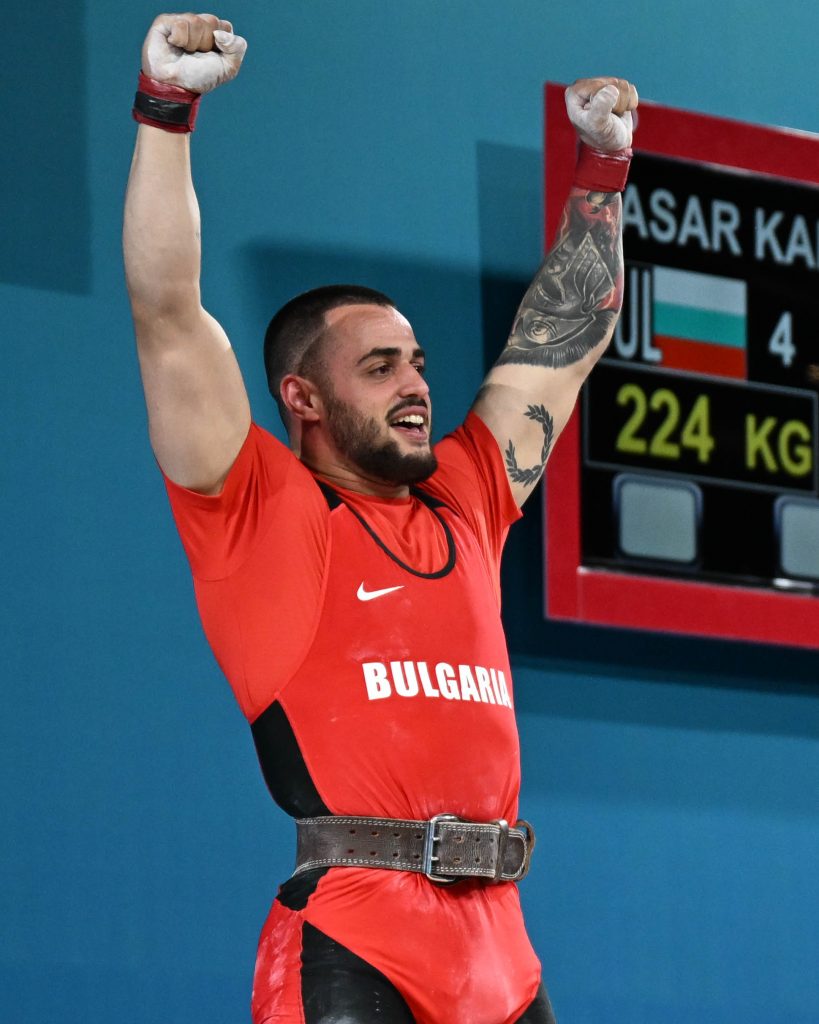 Karlos Nasar (BUL)
Karlos Nasar (BUL)
Liu Huanhua had, in his own words, “a breakthrough victory for Chinese weightlifting” at the age of 22. He is the first man from his country to win in a 100kg-plus category.
Rizki Juniansyah won 73kg gold aged 21 for Indonesia, which also expects much from Rahmat Erwin in the years to come.
Olivia Reeves, also 21, was the first American woman to stand on top of the weightlifting podium at the Olympics. Li Wenwen won her second gold for China aged 24. Solfrid Koanda became Norway’s first female champion at 25.
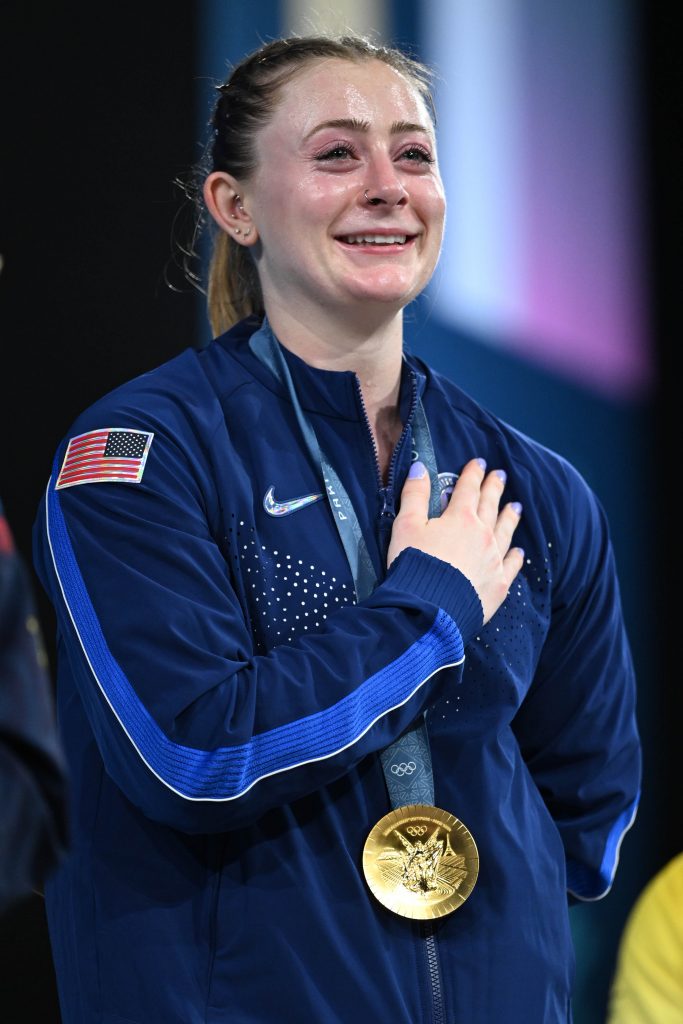
Olivia Reeves (USA)
Seven of the 10 winners were 25 or younger, which in percentage terms is twice as many as last time in Tokyo, where the ratio was five in 14 medal events.
We saw outstanding performances by other youngsters in Paris. Mihaela Cambei from Romania went close to winning gold at 21, taking her social media following close to half a million in the process. Park Hyejeong from Korea, also 21, finished second to Li Wenwen and is already looking forward to a rematch at Los Angeles 2028.
Four other 20-year-olds, besides Nasar, shone in the men’s events – medallists Weeraphon Wichuma and Theerapong Silachai from Thailand and Hampton Morris from the United States, plus the exciting super-heavyweight Ali Ammar Yusur from Iraq. Ammar, who broke two junior world records in finishing sixth, should win the junior world title by a long way in Spain next month.
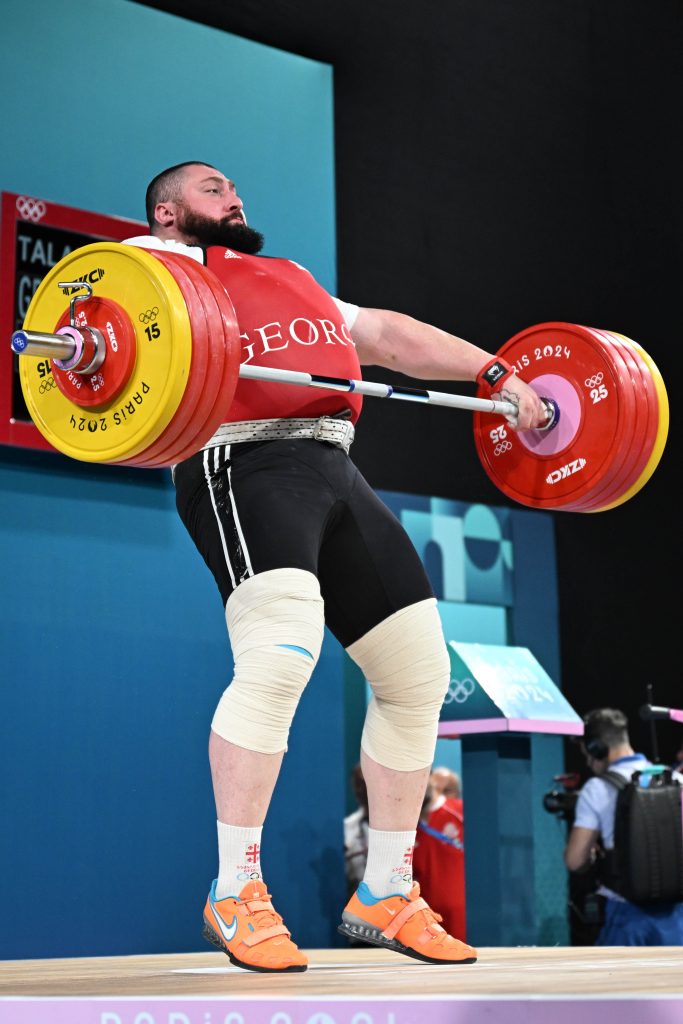
Lasha Talakhadze (GEO)
There were many more stars in Paris – thousands of them, sitting and often rising to their feet in the 4,000-capacity South Paris Arena. The fans created a vibrant, party-like atmosphere throughout the sessions.
Those who were there speak especially highly of the “show” at Atlanta 1996, Athens 2004 and London 2012. Paris 2024 was up there with them.
There was a good example in the final session on Sunday, the women’s super-heavyweights in which two lifters – Chaidee Duangaksorn from Thailand and Crismery Santana from Dominican Republic – were saved from a bombout by the crowd’s support.
Chaidee looked downhearted and beaten in the back room after two snatch failures. She could barely believe the backing she got when she came out for her third attempt and made it.
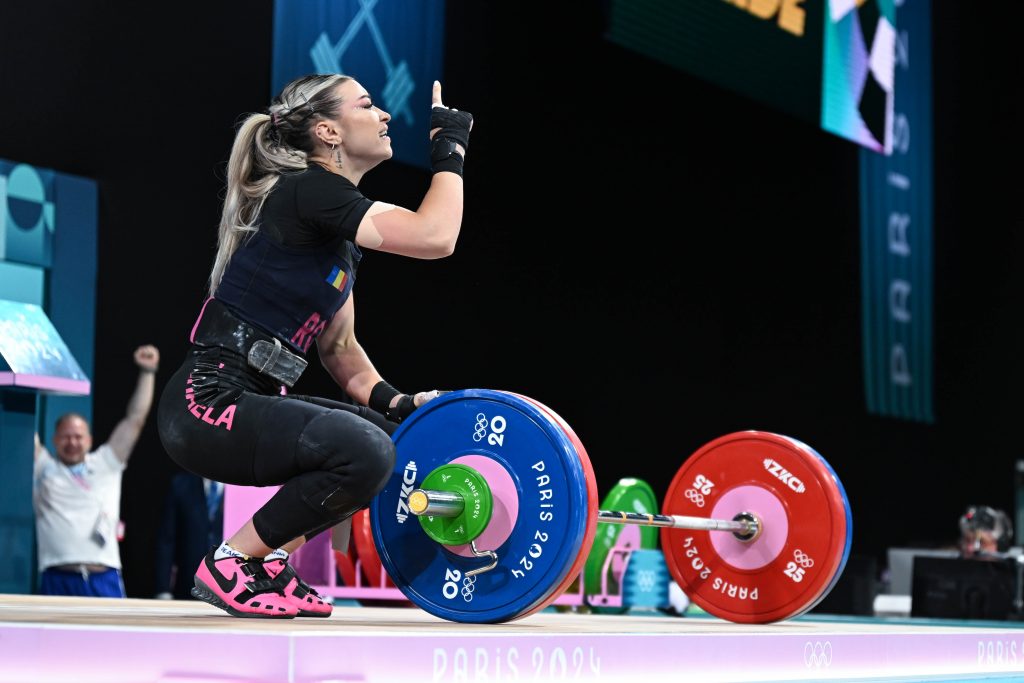 Mihaela Cambei (ROU)
Mihaela Cambei (ROU)
“I have never experienced anything like it,” she said. “It was like the people were lifting the bar with me.”
Many other athletes said the same. Lesman Paredes from Bahrain was among them and may go back on his decision to retire after his experience in Paris. “I loved it out there. The support from the crowd, I could really feel it.”
One element the crowd clearly did not like was the jury review process. Every overturned ‘good lift’ decision was greeted with boos.
There was good news away from the platform, too. Those who have been in weightlifting for a while will know that when the wider media world takes an interest in the sport, it is often for “bad news” reasons.
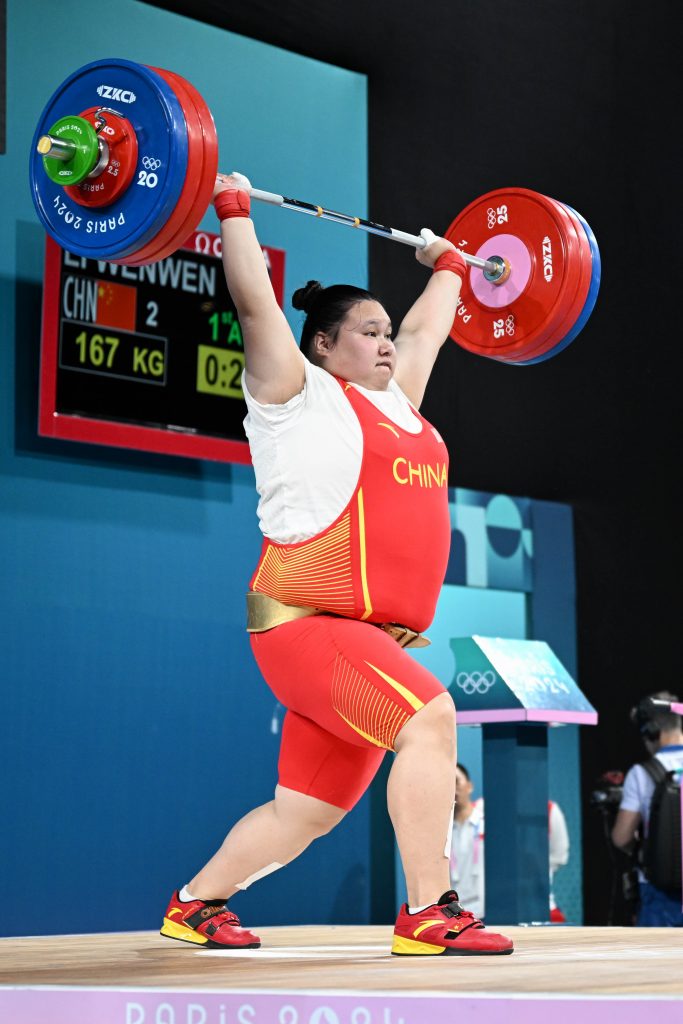
Li Wenwen (CHN)
This time the reports about doping and corruption were nowhere to be seen. There was a positive report about weightlifting in the Wall Street Journal, the second largest newspaper in the United States which usually focuses on business and finance.
One of the global news agencies wrote about the IWF’s “rebirth” after years of problems. It referenced the time, not long ago, when weightlifting was deemed to be “a problem child” by the IOC.
As the IWF president Mohammed Jalood said in that report, “I’m fully convinced that we aren’t any more.”
By Brian Oliver










